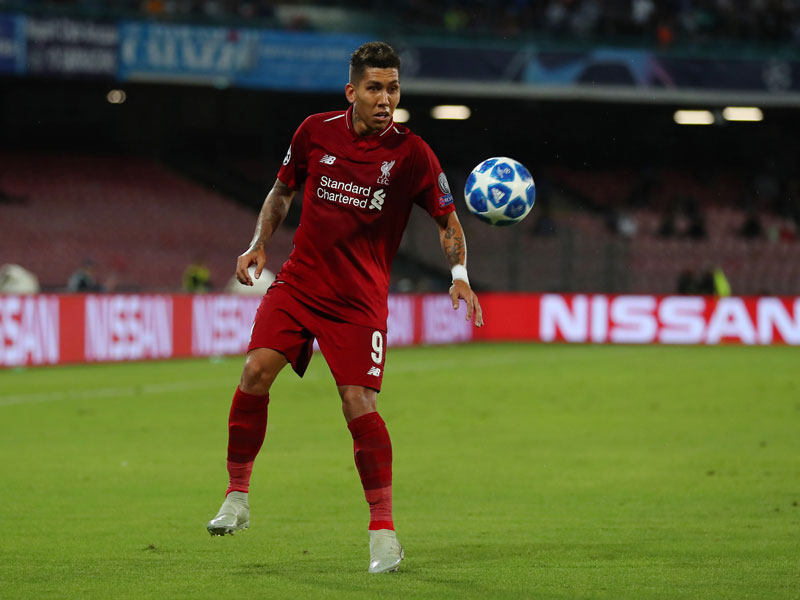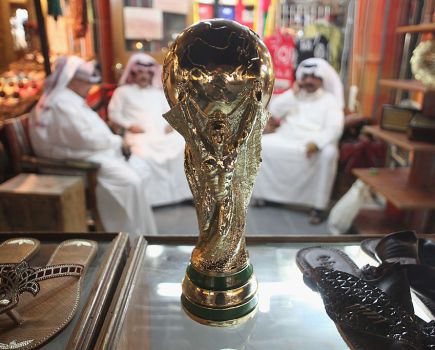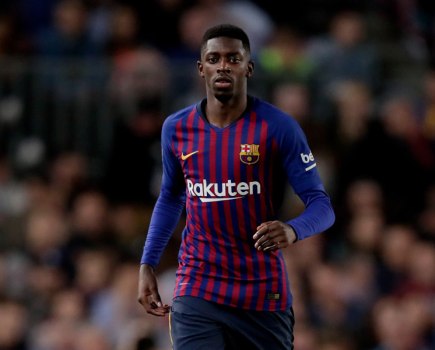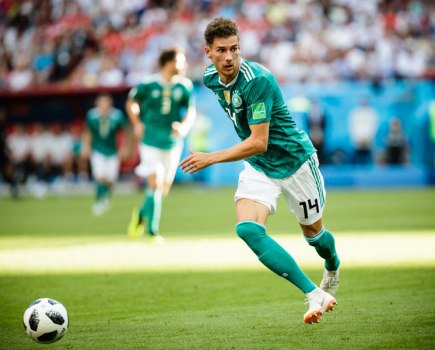Player Profile: Roberto Firmino
Welcome to our page dedicated to Brazil and Liverpool striker Roberto Firmino. This piece featured in our October 2018 issue and tracks his rise from playing in Brazil to leading the line for Liverpool in Jurgen Klopp’s exciting side. Have a read of Nick Bidwell’s piece below.
Player Profile: Roberto Firmino – From shy kid to Anfield hero
Scouting for overseas talent is no job for the naive. Just ask Hoffenheim, who had an eye-opening experience in 2010 when running the rule over 18-year-old Roberto Firmino, who at the time was a midfielder with second division Brazilian side Figueirense.
“We’d got hold of a video of Firmino from an agent and it left us puzzled,” reveals the club’s former director of sport, Ernst Tanner. “In it, Firmino appeared to have a shot like an absolute rocket. But we knew he didn’t hit a ball like that in reality. The video had been speeded up. Every bit of play was that little bit quicker.”
Whether cutting-room shenanigans or just technological incompetence, the German club was not going to be put off the scent and they set about watching him in the flesh over a sustained period of time. Convinced he was made of the right stuff, they finally signed him for a cut-price €5million in December 2010.
Plenty of water has passed under the bridge since then, with the Brazilian meeting every career examination with flying colours and developing, at the age of 26, into one of the world’s best all-round forwards.
“The boy was just a really good player,” recalls Tanner. “What impressed me the most was his attitude. His coaches in Brazil did a tremendous job of preparing him. They used to criticise him a lot, but he never took it the wrong way. He’d come back for more. He wouldn’t be deterred. In training sessions [with Figueirense] he worked like a man possessed. He was irresistible. He had a real never-say-die attitude. That was awesome.”
A great deal of fake-news folklore has grown up around how he came to the attention of Hoffenheim. Some claim club officials first noticed him on the Football Manager video game, while others say coach Ralf Rangnick spotted him on YouTube.
But while renowned talent-spotter Rangnick would certainly have checked him out on YouTube and was extremely keen to bring the youngster to Europe, he did not personally kick-start the headhunting process. The man who effectively planted the seed in the Hoffenheim consciousness was player agent Roger Wittmann.
His company Rogon enjoyed a close working relationship with the German club and had already supplied them with Brazilian midfielders Carlos Eduardo, Luiz Gustavo and Maicosuel, striker Wellington and centre-back Fabricio. With his extensive network of contacts in Brazil, Wittmann very much had his finger on the footballing pulse there. So as soon as Firmino began to make a name for himself – with a key role in Figueirense’s promotion to the top flight in 2010 – he was on the phone to Dietmar Hopp, who is the German club’s financial backer.
But it wasn’t a smooth ride all the way for the youngster on arriving in Germany. Homesickness was a malaise he could not shake and he couldn’t master the language, usually having to communicate through a translator. And he was even dropped from the first-team squad for a spell when guilty of turning up late for training. But determined not to quit, he knuckled down and integrated.
Hoffenheim proved to be the perfect point of entry into the European game for Firmino. He never had to worry about first-team rotation – if he was fit, he played – and he could learn his trade in a good quality Bundesliga side, where he was used mainly in an advanced midfield role but also clocked up time as a winger, second striker and leader of the line.
But after four-and-a-half seasons at the Rhein-Neckar-Arena, both player and club knew it was time for Firmino to move on from Hoffenheim. As the club’s director of football Alexander Rosen explained: “Because of his quality and spectacular development in the past couple of years, we were no longer in a position to hold onto him.
“It was always clear that at some point he was going to become too big for us. His departure for Liverpool left us with one eye laughing and the other shedding a tear.”
Hoffenheim did not merely provide Firmino with a platform for fame and fortune; they also schooled him to be the sort of player that Liverpool manager Jurgen Klopp loves.
Under Hoffenheim coaches Rangnick and Markus Gisdol, the Brazilian was an integral part of a Klopp-like machine: with attackers as the first wave of the high press, split-second transitions and turbo-charged attacking forays.
So it’s easy to see why Klopp says of the Brazilian: “He is world class pretty much every day.”

Firmino in action for Hoffenheim (Getty Images)
Much to the fore as Liverpool finished as Champions League runners-up last season, Firmino is arguably the key player in their attack. While Mohamed Salah and Sadio Mane are the fleet-footed flank arrows, he is the one who lights the fuse, creating all sorts of havoc with his clever runs off the ball, awareness around the box, creativity and hunger to win the ball back.
Brendan Rodgers, who was Klopp’s predecessor at Anfield, wasted Firmino on the wing in his early days, expecting him to do too much tracking back and keeping him away from goal. But Klopp plays to the Brazilian’s strength: his sharpness of mind. “He thinks so quickly that he seems to have faster nerve impulses than anyone else,” former Hoffenheim boss Gisdol once declared.
Born and brought up in Maceio, the capital of the north-eastern Brazilian state of Alagoas, Roberto Firmino Barbosa de Oliveira grew up in the Trapiche quarter of town, where life was hard for father Jose Roberto, mother Mariana and younger sister Roberta Marcella. With his dad making a meagre living selling water and soft drinks, there was barely enough money for food so the adolescent Roberto had to do his bit, selling coconuts on a local beach.
One of his teachers at junior school, Adriana Leite, remembers a conversation she had with the then 10-year-old. “One day he told me that the power had been cut off in his house,” she told Brazilian daily O Globo. “I asked him about the things in the refrigerator. He replied that apart from water, there was nothing in there. I’ve never forgotten this episode. It had a great impact on me. When I see pictures of him now, I have trouble associating them with the slim boy I used to know in my classroom.”
Obsessed with the game from the earliest of ages, he joined local amateur side Independente and got his first big break at 14 when taken on board by regional powerhouse CRB (Clube de Regatas Brasil) after a successful trial.
“From the first moment I set eyes on him, I could see the potential he had,” CRB youth-team coach Guilherme told O Globo. “I straight away sent someone to get his paperwork in order. As a player for our junior teams he used to wear the defensive midfield number five shirt. He was a very humble kid. A good lad. Sometimes he didn’t have enough money to get to training and we’d help him out. I also recall him often arriving at the ground on the back of his father’s bike. He’s come a long way since then.”
During his three seasons with CRB, where he often lined up alongside future Real Sociedad and Brazil striker Willian Jose, he was befriended by the club dentist, Martellus Portella, who was to become his advisor and agent.
“The first time I saw him play for the CRB youth team I immediately realised what a talented boy he was,” Portella said to the Sao Paulo newspaper O Estado. “He had phenomenal intelligence, he dribbled well and had great vision. The thing was, no one seemed to pay too much attention to him. When I made the prediction that he would one day play for Brazil, I was told I was crazy. The others were the crazy ones.”
In normal circumstances Firmino would have turned pro at CRB, who were in the Brazilian second division. However, a gaping hole in the club’s finances saw Firmino and Portella looking elsewhere.
It was Atletico Mineiro midfielder Bilu, who was also a native of Maceio, who came to the rescue, arranging for the 17-year-old to try out with three-time South American champions Sao Paulo.
When that came to nothing, Bilu’s next call was to Figueirense in the southern state of Santa Catarina. “In his first training session with us, he scored two great overhead-kick goals in the opening 30 minutes,” recalls under-17 coach Hemerson Maria. “It was so impressive. We’d planned to give him an extensive workout but that was all the time we needed to realise what a good player the kid was. Bad luck for Sao Paulo.”
Figueirense switched him to an attacking midfield role, and Maria says: “He didn’t have a high level of education but had remarkable game intelligence. He was the complete player. A good decision-maker, technical, and performing with a lot of personality. He was a special one and I had no hesitation in making him my number 10. He was very driven too. In his first season here, he didn’t once go back to his home town. He said he didn’t want to go back until he’d made it in life. Once he’d become a professional and started to earn a larger salary he’d go back to Maceio for national holidays.”
Character-wise, the teenage Firmino was the classic Jekyll-and-Hyde type. Assertive and confident on the field of play, he was introverted off it. Maria has a particularly relevant tale to tell when he says: “Since I had a lot of new youngsters in my team, I used to get some of the names of the boys mixed up. For the first couple of weeks of us working together I called him Alberto and he didn’t correct me. Finally, one of the fitness coaches, informed me that his name was Roberto.
“To get to the bottom of it, I called out ‘Alberto, come here’ and he came running up to me. I asked him his name and he told me Roberto. A really nice lad but so shy.”
It was in 2009 that it all started to come together for Firmino as he excelled for Figueirense’s under-20s, starred in the Copa Sao Paulo junior tournament and made his first-team debut. The following year he made a major contribution to the club’s second division runners-up spot, which booked their ticket back to the top flight.
Voted the championship’s Revelation of the Year, he had truly arrived. He was primed and ready for that transatlantic crossing to Hoffenheim. These days Firmino’s mile-high status as one of the main men in the English top flight and Champions League must feel like a dagger between the shoulder blades for insiders at Marseille.
Tempted by excellent scouting reports and a rock-bottom price tag of just €1m, OM had not one but two failed attempts at landing the teenage Firmino.
An initial attempt to take him to the south of France for a trial ended in farce and dismay when immigration officers at Madrid airport deemed his documentation inadequate. They cancelled his ticket for a connecting flight to Marseille and deported him.
The second time Marseille at least managed to monitor him on Provencal turf, before eventually concluding that he was a little too timid for their liking.
“We had him training with our reserves for a month and all the coaches who looked at him thought he had potential,” former OM personnel chief Jean-Philippe Durand told a Canal Plus talk show earlier this year. “He even took part in some shooting drills with the pro squad and was impressive. However, he was only 17 and seemed a little lost in a different country. At the time, he didn’t quite fit our recruitment strategy. Given what he’s achieved since, it has to go down as an error on our part.”

Firmino playing for Brazil at the 2018 World Cup (Getty Images)
A member of Brazil’s side at this summer’s World Cup in Russia, Firmino first broke into the Selecao ranks in the autumn of 2014, making his debut as
a substitute in a 4-0 friendly win over Turkey in November. Six days later, he scored a late long-range winner against Austria in Vienna.
By no means a fan favourite during his two stints in charge of the Selecao and frequently derided for his uninspiring utilitarian brand of football, 1994 World Cup-winning skipper Dunga did recognise a class act when he saw it and he was particularly fond of Firmino.
Dunga had liked the cut of the youngster’s jib during his days at Figueirense and even tried to sign him when in charge of Internacional in 2013. But that was wishful thinking on Dunga’s part as Hoffenheim were determined to hold onto their star at the time.
“Firmino is an outstanding attacking-third player,” explained Dunga on picking him for the first time. “I’ve been following him for a long time now. He’s technically very comfortable, quick, has good instincts, finishes well and always looks to make tracks for the opposition goal. I think he could play for any big European club.”
Never was a truer word spoken
Don’t forget to follow World Soccer on Facebook and Twitter.







